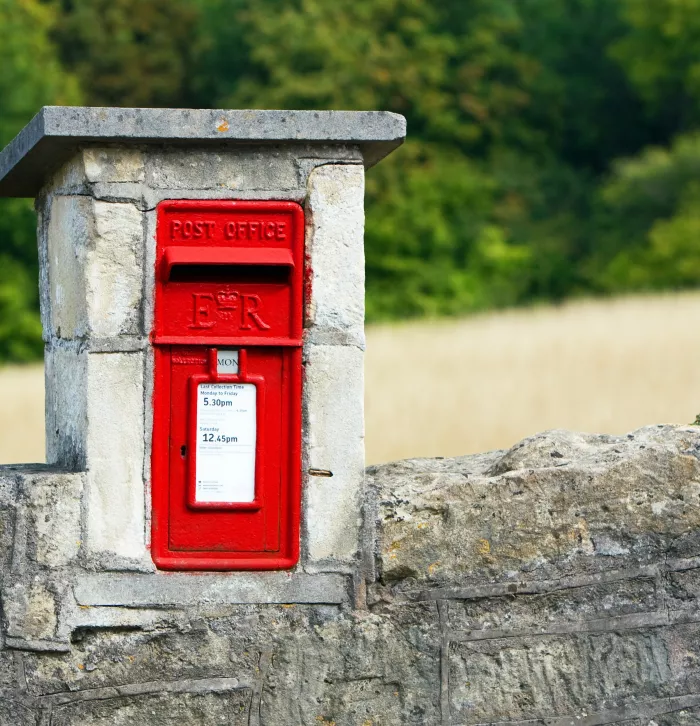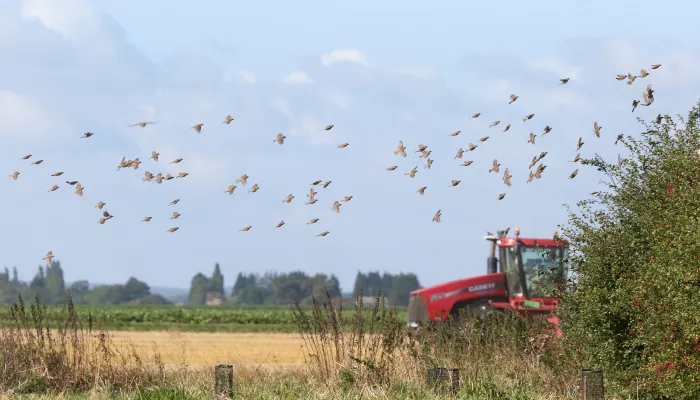Britain's hedgerows
-
120000 km
of hedgerow could be under threat due to the removal of cross-compliance
-
50 %
less hedgerow exists in Britain compared to 70 years ago
Barnaby Coupe, Land Use Policy Manager of The Wildlife Trusts, says:
“The situation is desperate. The UK Government has ripped up important rules that help protect hedgerows and require buffer strips to prevent river pollution. This danger is compounded by low levels of uptake into new farming schemes which incentivise only the most basic green practices on farm, leaving nature at a net loss.
“The Environment Improvement Plan published just this year stated “This government is committed to leaving the environment in a better state than we found it” – but this promise rings hollow now that safeguards against damaging farming practices have vanished. We need to see a firm commitment from Government that protections for nature will be at the very least maintained this year at the same level as the old regulations.”
In a response about a regulatory gap in August 2023, Defra stated that ‘‘the majority of rules under cross compliance are already in domestic law’’. However, the removal of cross compliance from 1st January 2024 leaves regulatory gaps across hedgerows, soil cover and watercourse buffer strips that are not covered by existing regulation.
Defra issued a consultation on hedgerows in 2023, but delays in the Government’s response mean that regulatory gaps between January 1st and the bringing in of new protections are now inevitable. There are over 400,000km of hedgerows in England alone, which is still around 50% less than there were in the 70 years ago. A report by the RSPB, Mind the Gap, found that even with high uptake of new farming schemes, over 120,000km of hedgerows could be at risk from damaging practices due to the removal of cross compliance.
Kent Wildlife Trust’s Nature Recovery Manager Rory Harding says that the change means that farmers who have been working to protect wildlife could have their efforts undermined:
“Stripping away protections for wildlife, means farmers who have worked tirelessly to both produce food and recover nature in their local areas, could have their efforts undermined by the few who choose not to follow best practice, and will be free to do so without environmental protections in place.
“The majority of farmers and environmentalists are on the same page on this, and see no benefit to not replacing these vital protections. Fantastic wildlife habitat can take a lifetime to build up, but can also be destroyed in just a single day.
“Our Farmer Cluster Officers get to work with amazing farmers going that extra mile to protect and recover wildlife across their farms while producing healthy food for our plates. By working with Farmer Cluster groups, we are supporting landscape-scale coordinated action with inspirational farmers taking the lead.”
The Wildlife Trusts, National Trust and RSPB urge the UK Government to uphold protections for nature while providing much better support for farmers to take a ‘whole farm’ approach to nature-friendly farming through new Environmental Land Management (ELM) schemes, rather than simply receiving payments for one-off actions with isolated benefits for wildlife. Critical to this is increasing support for farmers to access independent advice for the best actions to take on their farm.
Those who have concerns about cross compliance can write to their MP.


